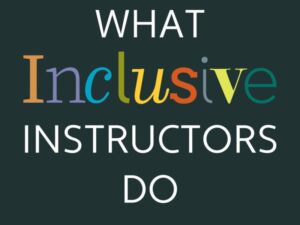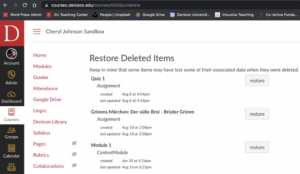
Still wondering how to leverage the best parts of Canvas for your classes? Modules are a great way to present materials to your students. They are flexible, and you can set them up however you like. For some basics on modules, take a look at the Canvas instructor guides section on modules. Prefer a video? Here’s one that has an overview of modules.






